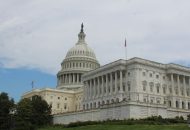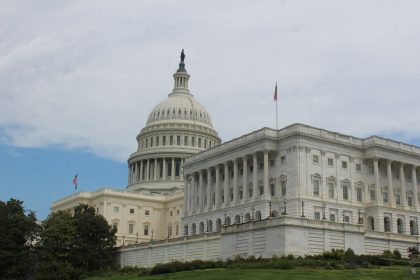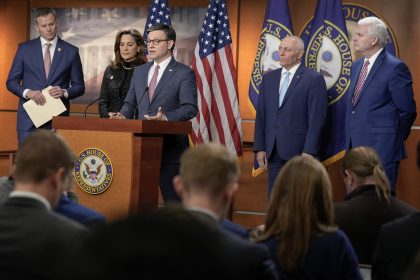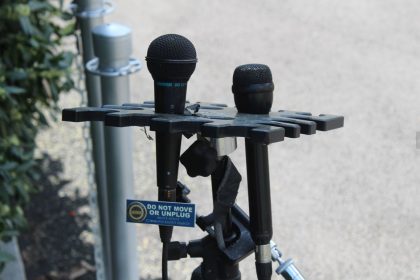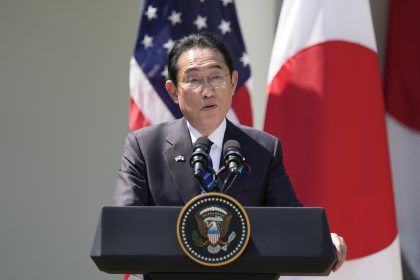Bipartisan, Bicameral Lawmakers Circulate Details of COVID Relief Proposal
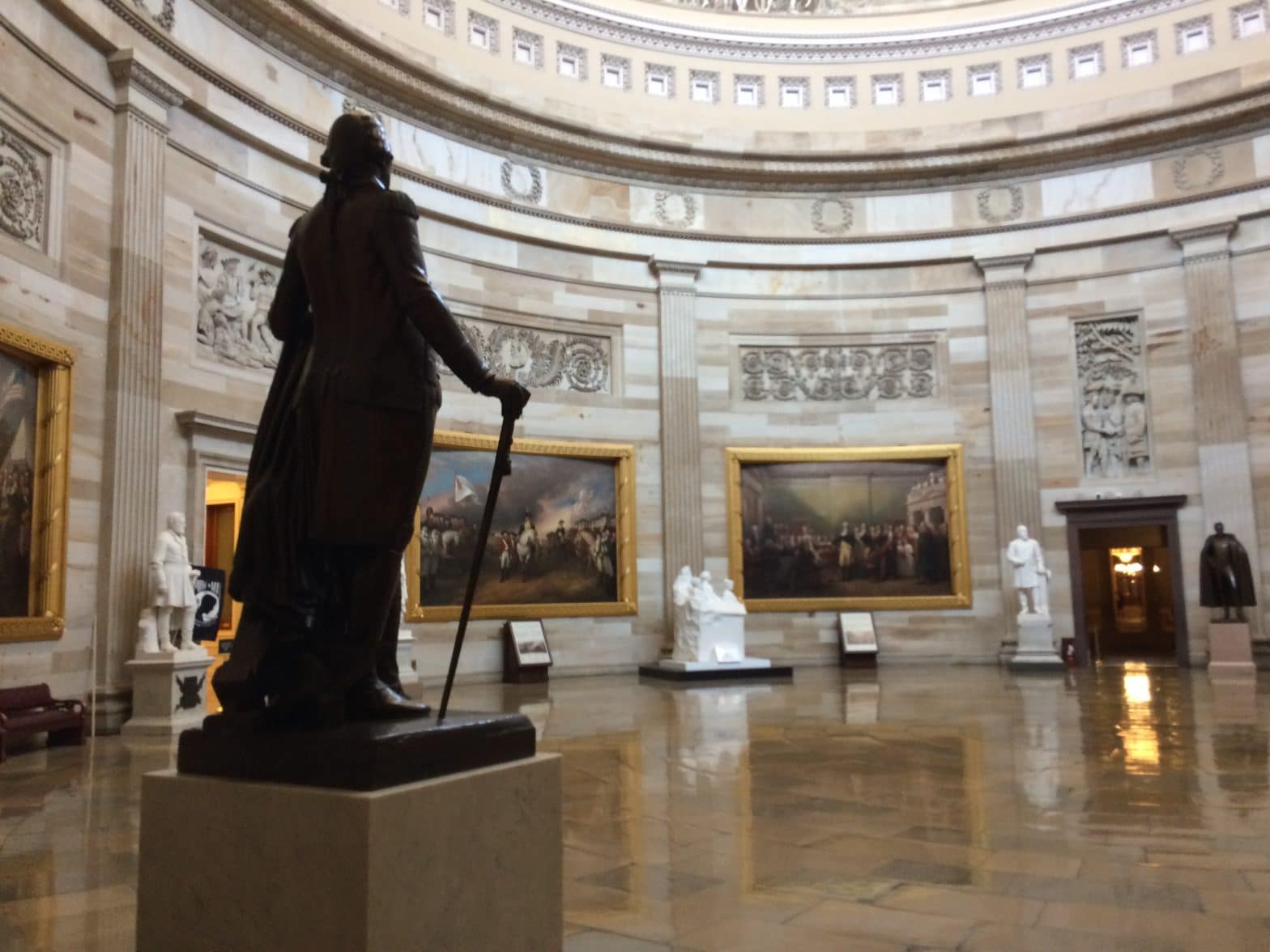
WASHINGTON – A bipartisan group of lawmakers from both the House and Senate circulated details of the $908 billion coronavirus relief proposal, though significant hurdles to its passage remain.
Among them is the fate of proposed aid to state and local governments, as well as liability protection for businesses.
The parties are sharply divided on both. Democrats see aid to state and local governments as one of the cornerstones to any meaningful aid package. Meanwhile, liability protection is a priority for Republicans that Democrats, so far, have been unable to abide.
On Tuesday, the rift between the parties on these issues bubbled over after Senate Majority Leader Mitch McConnell, R-Ky., suggested leaving both elements of the package aside and simply moving on to passing those provisions on which consensus could be reached.
Senate Minority Leader Chuck Schumer, D-N.Y., responded by saying Republican proposals “each one of which has been sorely inadequate” all contain a “poison pill” designed to ensure the bill’s failure.
One of these poison pills, he said, is the “red line” McConnell “has tried to draw on the issue of corporate immunity.’
“Contrary to the majority leader’s dire predictions, there has been no flood of COVID lawsuits. In fact, quite the opposite. Almost a year into this pandemic, with nearly 15 million Americans infected, 280,000 lives lost to COVID-19, there have been only 111 COVID-related lawsuits filed regarding conditions of employment; 23 suits for personal injury from exposure to the coronavirus in a public place, and 11 COVID-related medical malpractice suits,” he said.
“Far from a pandemic of lawsuits, there has been barely a trickle. And yet, the Republican leader continues to prevent Americans from getting the aid they so desperately need and deserve, until he gets this piece of partisan, ideological legislation,” Schumer said.
Both he and House Speaker Nancy Pelosi, D-Calif., also rebuked McConnell for proposing to set aside funding for state and local governments, accusing him of merely trying to scuttle the ongoing bipartisan discussions of a deal.
On Tuesday evening, Treasury Secretary Steven Mnuchin presented Democrats with a $916 billion proposal that includes aid to state and local governments.
However, both Schumer and Pelosi said it didn’t go far enough in terms of providing funds for unemployment insurance.
Asked about the developments Wednesday, House Majority Leader Steny Hoyer told reporters on a morning conference call that he agreed with Schumer and Pelosi.
“I don’t know that the Mnuchin proposal has added positively to the effort [to achieve an agreement] in that it appears to continue to promote this very, very controversial issue which we believe is essentially unrelated to COVID-19,” he said.
“Reducing the availability of redress of grievance cases, which has been a Republican priority for a very long time …” Hoyer said. “And unfortunately, Sen. McConnell has constructed a trade [leaving aside both the liability and state and local aid issues] that is undesirable.”
The House Majority Leader went on to say he doesn’t believe it’s possible for McConnell to defend a proposal to eliminate additional aid to state and local governments “that are struggling.”
“They hire many of the frontline workers that keep our communities clean and safe and healthy,” he said.” And in a time of pandemic, it seems to me to make no sense to deprive those levels of government of the help, they need to be the most effective, including, of course, being frontline players in the delivery of the vaccine.”
Of Mnuchin’s proposal, Hoyer said any proposal that would reduce the availability of unemployment compensation is “not helpful.”
“I haven’t talked to the Speaker or Sen. Schumer specifically about it, but I’ve seen what they’ve said and my reaction would be the same,” he said.
Asked about the $908 billion bicameral proposal being champion by Sens. Joe Manchin, D-W.Va., Susan Collins, R-Maine, Mark Warner, D-Va., and Bill Cassidy, R-La., as well as the bipartisan House Problem Solvers Caucus, Hoyer said he doesn’t believe the bill is “the optimum proposal,” but that it’s a start.
“We thought our Heroes Bill was an excellent bill,” he said of he, Schumer and Pelosi.
The Heroes Act, also known as the Health and Economic Recovery Omnibus Emergency Solutions Act, is a proposed $3 trillion stimulus package that is intended to supplement the earlier CARES Act stimulus package. It passed the House by a vote of 208-199 in May.
Later he added, “We need to get this done.”
What follows is a summary of the proposed bipartisan and bicameral Emergency COVID Relief Act.
Total: $908 Billion
Support for State, Local and Tribal Governments
- Agreement in principle to provide $160 billion as the basis for good faith negotiations.
Unemployment Assistance
- Extension of all pandemic unemployment insurance programs by 16 weeks, from their expiration at the end of December;
- Federal supplemental unemployment insurance benefits expanded by $300 per week for 16 weeks, from the end of December into April 2021;
- $1 billion for state systems for technology modernization and fraud prevention;
- Small administrative adjustments, e.g. to certification requirements and overpayment standards.
Paycheck Protection Program & Small Business
- $300 billion to Small Business Administration;
- Funding to allow the hardest-hit small businesses to receive a second forgivable Paycheck Protection Program (PPP) loan;
- Eligibility would be limited to small businesses with 300 or fewer employees that have sustained a 30% revenue loss in any quarter of 2020.
- Small 501(c)(6) organizations that are not lobbying organizations and that have 150 employees or fewer, such as local chambers of commerce, economic development organizations, and tourism offices, would become eligible for PPP.
- Forgivable expenses are expanded to include supplier costs and investments in facility modifications and personal protective equipment to operate safely;
- Business expenses paid for with the proceeds of PPP loans are tax deductible, consistent with Congressional intent in the CARES Act;
- Loan forgiveness process is simplified for borrowers with PPP loans of $150,000 or less.
- Set-asides are included to ensure that smaller borrowers and underserved communities get the help they need, such as: for small businesses with 10 or fewer employees; for loans made by small community lenders, including Community Development Financial Institutions (CDFIs), credit unions, small community banks, Minority Depository Institutions (MDIs), and farm service lenders; and for the Minority Business Development Agency;
- Funding for independent live venue operators affected by COVID-19 stay-at-home orders;
- Extension of Section 1112 of the CARES Act, which provides payment of principal, interest, and associated fees on qualifying Small Business Administration (SBA) 7(a), 504 and microloans;
- Funding for SBA loan products to increase guarantees on SBA 7(a) loans and reduce fees on 7(a) and 504 loans; provide loan subsidies for 7(a) loans; and provide Economic Injury Disaster Loan grant advances.
CDFI / MDI Community Lenders
- $12 billion in targeted emergency investments to help low-income and minority communities withstand the economic impact of the COVID-19 pandemic and respond to this unprecedented economic downturn;
- $2 billion in emergency COVID-19 funding to the CDFI fund, for emergency COVID relief and relief to minority communities, and minority owned lenders disproportionately impacted by the by the COVID-19 pandemic and resulting economic stress;
- $10 billion in emergency capital injections to eligible CDFIs and MDIs to support immediate economic relief in low-income and minority communities struggling to respond to the COVID-19 pandemic.
Transportation Funding
- Extension of the Payroll Support Program (PSP) through March 31, 2021. As in the CARES Act, funds will go directly to frontline aviation workers’ wages, salaries, and benefits. Workers and taxpayers are protected though measures including prohibitions on stock buybacks and dividends, and limitations on executive compensation;
- Funding for Airports, including set asides for airport concessionaires, Essential Air Service (EAS), and Small Community Air Service Development Program (SCASDP) through March 31, 2021;
- Funding to support the motorcoach and bus industry as well as others, including passenger ferries and school buses, similar to the Coronavirus Economic Relief for Transportation Services (CERTS) Act of 2020;
- Funding to support public transit systems across the country that will be used to prevent furloughs, meet operating needs, and keep systems running;
- Funding to allow Amtrak to continue to provide existing service and prevent additional furloughs through March 31, 2021.
Supporting Health Care Providers
- $35 billion to the Provider Relief Fund (PRF).
- $7 billion for rural providers and $1 billion for tribes, tribal organizations, urban Indian health organizations, and health service providers to tribes;
- Fix to PRF reporting guidelines, include clarification that PRF can be used for staffing, including child care staff;
- Allows health systems to move targeted Provider Relief Fund distributions within their system;
- Includes a directive to HHS to consider appropriate distribution of funds, including for health providers who were under-represented in previous allocations, or are at risk of imminent closure.
Vaccine Development & Distribution
- $3.42 billion for direct grants for states, local, territories, and tribes;
- Allows states to use funds for tracking systems and data modernization;
- Directing the Secretary to take into account geographical areas with high percentage of cross jurisdictional workers;
- $2.58 billion for CDC vaccine distribution and infrastructure;
- $129 million for tribes, tribal organizations, urban Indian health organizations, or health service providers to tribes;
- Contingency/Discretionary fund to be utilized by Secretary to send additional aid to states to assist with vaccine distribution;
- § Allows states to use USPS registry to help track vaccine distribution
Testing and Tracing
- $7 billion in direct grants for states, territories, and tribes.
- $3.5 billion to states, territories, and tribes;
- $2.32 billion to hot spots;
- $825 million to be used at the Secretary’s discretion to states
- § Includes authorization for grants to Federally Qualified Health Centers, school-based health clinics, schools, academic medical centers, colleges and universities, research labs, veterinary labs, nonprofits, Indian tribes, local governments, and other entities
- $350 million to tribes, tribal organizations, urban Indian health organizations, or health service providers to tribes
- $2 billion for nursing homes, long term care, HCBS, and assisted living facilities.
- Includes $200 million for nursing home strike teams
- $300 million for Health Workforce programs, including the National Health Service Corps and Nurse Corps, to support loan repayment to recruit clinicians for underserved areas
- $700 million to the Secretary for additional research, procurement and medical supply needs, including:
- To make purchases of personal protective equipment and other medical supplies as needed to address the COVID-19 pandemic;
- Fund research at the National Institutes of Health, including studying Post-Acute-Covid-19 syndrome and other long-term health outcomes in COVID-19 survivors;
- Develop, purchase, distribute and otherwise ensure the timely delivery of a safe and effective COVID-19 vaccine to the American public;
- Authorizes states, tribes and territories to enter into interstate compacts or agreements, for the purposes of procuring COVID-19 tests and supplies for such tests;
- Extends telehealth flexibility through December 31, 2021.
Education Funding
- Provides $82 billion for education providers, funded similar to the CARES Act with provisions including funding for:
- CARES Act Governors Emergency Education Relief Fund, including funds for private schools;
- Elementary and Secondary School (K-12) Emergency Relief Fund;
- Higher Education Emergency Relief Fund
- § Including set aside for minority serving institutions and development institutions and for institutions with greatest unmet needs.
- Relief for territories and Bureau of Indian Education.
Student Loans
- Extension of student loan forbearance provisions created in CARES and extended by Executive Order, from the current expiration date of January 31, 2020 through April 30, 2021
Rental Assistance
- Provide $25 billion in rental assistance to states and local governments and Native American tribes through the Coronavirus Relief Fund
- 90 percent of funds must be used for payment of rent, rental arrears, utilities, utility arrears, and related housing stability services with 10 percent of funds available for housing stability services
- Specific guardrails to ensure support for the most in-need households, with a preference for households with 50 percent of area median income and below
- Support can cover up to 18 months of arrears and forward assistance
- Provide an eviction moratorium until the end of January 2021.
Nutrition
- Temporary increase in individual monthly Supplemental Nutrition Assistance Program (SNAP) by 15% for four months;
- Expands the Pandemic-EBT program to cover families with children in child care;
- Provides funding for The Emergency Food Assistance Program (TEFAP), including funds for storage and administration, to support food banks and food pantries;
- Provides support for the Special Supplemental Nutrition Program for Women, Infants, and Children (WIC) to temporarily increase the value of WIC benefits to allow participants to purchase additional fruit and vegetables;
- Provides funding for senior nutrition services, including Meals on Wheels, and extends waivers providing flexibility in Older Americans Act nutrition services;
- Extends free meals reimbursement through the Child and Adult Care Food Program to young adults up to age 25 residing in emergency shelters;
- Includes food assistance to U.S. territories not served by SNAP (Puerto Rico, American Samoa, Commonwealth of the Northern Marianas Islands);
- Includes additional funds for Food Distribution Program on Indian Reservations;
- Includes additional funds for the Commodity Supplemental Food Program to provide food boxes to more senior citizens
Agricultural Assistance and Fisheries
- $13 billion to provide funding to address COVID-related impacts on farmers, ranchers, growers, etc., and rural communities.
- Includes $600 million for fishery disaster relief, including funding for tribal and Great Lakes fisheries
- USDA Rural Development funding for water and wastewater programs
USPS
- Modify the CARES Act to specify that Treasury shall provide the $10 billion at USPS’s request without requiring repayment nor applying the terms or conditions agreed to in principle by USPS and Treasury in July 2020;
- Require the Board of Governors to present to Congress within 180 days of enactment a plan to ensure the USPS’s long-term solvency;
- Require USPS to include information on the use of these funds as part of its quarterly and annual reports to the Postal Regulatory Commission.
Child Care Providers
- $10 billion to support child care providers struggling due to the COVID 19 pandemic
Broadband
- $6.25 billion for State Broadband Deployment and Broadband Connectivity grants to bridge the digital divide and ensure affordable access to broadband during the COVID 19 pandemic;
- $3 billion for an Emergency Educational Connectivity Fund to provide E-Rate support to educational and distance learning providers to provide hotspots, devices, and other connected devices, and advance digital equity/inclusion. Funds prioritized to rural areas with the highest need;
- $200 million to Institute of Museum and Library Services (IMLS) to purchase and distribute Internet-connected devices to libraries in low-income and rural areas;
- $475 million to FCC COVID-19 Telehealth Program to support efforts of healthcare providers to address coronavirus, including a 20% set aside for small, rural health providers;
- $100 million to Department of Veterans Affairs for Telehealth and Connected Care Program to purchase, maintain, and refresh devices and services to veterans for provision of access to telehealth services.
Addiction and Mental Health
- $3.15B to SAMHSA programs for the Substance Abuse Prevention and Treatment Block Grant, the Community Mental Health Services Block Grant, tribal programs, emergency relief, and peer recovery programs;
- $1.3B to the State Opioid Response (SOR) Grants;
- $150M to the Certified Community Behavioral Health Centers (CCBHCs) Program;
- Expanding access to Medication-Assisted Treatment (MAT): Limited extension of associated CMS and DEA telehealth waivers and eliminate the requirement that requires practitioners to apply for a waiver through the DEA in order to prescribe buprenorphine for substance use disorder treatment to the end of the Public Health Emergency or to December 31, 2021, with appropriate state oversight and study to be conducted on buprenorphine diversion.
Rescissions
- Re-allocates unused Treasury direct loans and excess funds from Federal Reserve facilities authorized in the CARES Act;
- Re-invests unspent balances of funds remaining from the Paycheck Protection Program back into the Paycheck Protection Program.










